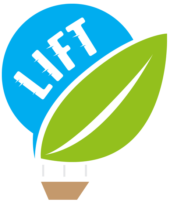Deliverable D2.2 LIFT large-scale farmer survey questionnaire
New deliverable available: D2.2 LIFT large-scale farmer survey questionnaire
A new LIFT project’s deliverable in the form of a public report is available for download: D2.2 LIFT large-scale farmer survey questionnaire.
The report has been prepared by the partners from: DEMETER (Greece), INRA (France), UNIKENT (United Kingdom), SRUC (United Kingdom), VetAgro Sup (France), BOKU (Austria), JRC (Italy) .
This deliverable represents the questionnaire intended for the survey of farmers to be carried out in the LIFT project, to at least 1,500 farms across the European Union (EU) in the LIFT case study areas. The LIFT large-scale farmer survey represents a key task that provides value added to the LIFT project and informs EU policy analysis as a whole. The innovation is that it collects primary qualitative and quantitative data at the farm level, but also that data will be comparable across a large geographical area, across different production sectors, as well as across different farming practices/systems. The survey aims at collecting information that is not available in existing data sources, and that will be used in the analyses of the project.
Survey intends to collect farmers’ information covering the following data:
- General characteristics of the farmer and the farm
- Current and future production practices
- Drivers of practices’ adoption
- Farm structural and economic information
- Subsidies and income
- Contracting for agricultural outputs
- Future policies
In a changing policy environment, farmers are increasingly being rewarded for farming in a way that provides public goods. Public goods provide environmental benefits such as improved soil or water quality, conserving biodiversity, or reducing greenhouse gas emissions. They also include social benefits such as animal health and welfare, promoting social capital in rural communities, or maintaining the rural landscape and heritage.
Some farming practices have been linked to the generation of public goods more than others such as practices that minimise the use of inputs, for example, pesticides or chemical fertilisers, or that promote biodiversity. These practices are common in organic or agro-ecological farming systems, but also in more conventional farming systems, and include the use of precision technologies or integrated pest management.
Throughout the questionnaire these practices are refered to as ecological farming practices. We are interested in finding out how widespread these practices are across the LIFT case study countries, what factors influence their adoption, and what might encourage their adoption in the future.
The information will enable a better understanding of the benefits and challenges to adopting more ecological practices and what support mechanisms might be required to further enable their uptake.

